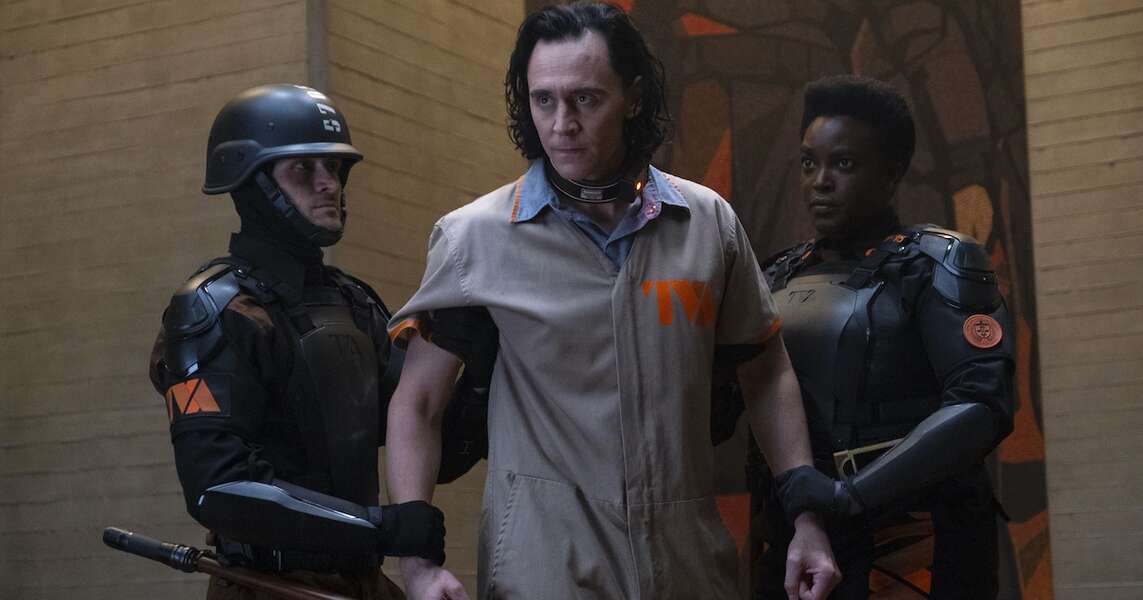
It’s really not surprising that Loki, brother of a Norse god, secret Frost Giant, and erstwhile foe of the Avengers, has become such a Marvel Cinematic Universe fan favorite. Played by Tom Hiddleston (handsome, charming, tall), dressed in cool outfits (swirling green capes and horned helmets), and hiding depths of emotion beneath a duplicitous exterior, the God of Mischief has been a consistent scene-stealer from the very beginning and has survived two onscreen deaths—once in a Thor: The Dark World misdirect, and then seemingly for real in Avengers: Infinity War.
Now, the character—or the version of him that existed immediately after the action in 2012’s The Avengers, one without the emotional development he experienced in subsequent MCU movies—has ascended to a lead role in Loki, a new Disney+ series. He’s dropped smack-dab in the middle of a time-hopping mystery involving the most formidable power in the multiverse, and it’s only a matter of minutes before he starts misbehaving.
ALSO READ: Our recap of ‘Loki’ Episode 1, “Glorious Purpose”
The third Disney+ live-action series to date, with episodes dropping every Wednesday, Loki begins with the scene from Avengers: Endgame that finds the Avengers tacking a trip back in time to steal back the Infinity Stones. A briefcase holding the Tesseract ends up at Loki’s feet and he uses it to bloop himself out of New York—and apparently off his timeline. He’s quickly apprehended by enforcers from the Time Variance Authority, who plan to delete him from existence now that he’s unwittingly escaped his predestined path, but he’s saved just in time by Mobius M. Mobius (Owen Wilson), an energy drink-guzzling TVA agent at the head of a case that, without revealing too much, he believes only Loki can solve.
It is all, without question, great fun. Disney’s Marvel shows clearly needed a winner after The Falcon and the Winter Soldier was such a strange disappointment, and the Loki series comes with none of that superhero baggage and confused political morality. It’s barely a superhero show at all, focusing instead on building an enormous science fiction-inspired world that owes more to time travel narratives than it does to comic books. You can tell that Loki wants to strike the kind of tone of The X-Files or Fringe, with the cosmic scale of Doctor Who, the off-putting weirdness of The Twilight Zone, and the fussy, buttoned-up sensibilities of Office Space and Brazil (the echoes of Terry Gilliam’s film on the headquarters’ monochrome hallways and delightfully analog computing equipment are inescapable).
The episodic nature of the series gives the story time to breathe, and Loki and Mobius spend a lot of scenes just sitting in chairs and talking. And it’s never boring! The script does, at times, have a tendency to write itself into circles—in the first episode, there’s a long passage where Loki pontificates about how freedom is the biggest lie in the universe, and then insists that free will must exist. (It’s implied, of course, that he only means free will for himself, but that paradox is never examined outright by anyone in the scene.) Hopefully when the plot really kicks off there will be less dead air in subsequent episodes.
It’s also a refreshing change from the familiar dreariness of the What It Means to Be a Hero plot we’ve come to expect from Marvel stories, since Loki, by design, is more obsessed with getting away with his tricks at any cost and only ever does anything you could call heroic by mistake. The first two episodes (the only episodes made available to critics) spend a lot of time deciding who Loki actually is, now that he’s set apart from everything he normally has to play off of. He’s out of his familiar environment without his relationship to Thor and Asgard to give him his usual destructive motivation, and now he’s the one at the center of the narrative doing all the heavy lifting. It’s such fun allowing this character to take up more space as an antihero rather than sidelined as a tragic villain, and Hiddleston is so good at mixing bad guy Loki’s growled, villainous threats with the panicked, out-of-his-depth hopping around he does here that you wonder why this franchise hadn’t been letting him do that this whole time. We’re more than happy to allow the God of Mischief to take control of our televisions for the next few weeks.







